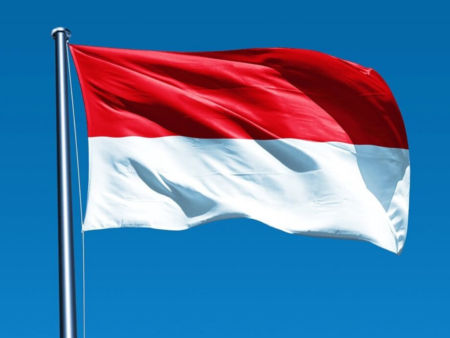The Dutch Gaming Authority, also known as Kansspelautoriteit (KSA), has recently taken enforcement action against BlockDance BV for violating the country’s strict gambling regulations. BlockDance, the company behind websites bc.game and bcgame.lu, has been accused of offering unlicensed gambling services to players in the Netherlands.

The Dutch Gaming Authority (KSA) Imposes Penalty on BlockDance BV for Unlicensed Gambling in the Netherlands
As per the KSA, BlockDance BV allowed Dutch users to create accounts, deposit funds, and participate in games of chance without the required licenses, which is a direct violation of the Dutch Remote Gambling Act. Although BlockDance initially attempted to block access to its services in the Netherlands, KSA’s ongoing surveillance revealed that the gambling sites became accessible again. This led to the issuance of a penalty payment order, demanding immediate cessation of gambling activities targeting Dutch players.
KSA’s Stringent Regulatory Framework
The Dutch Gaming Authority plays a critical role in regulating the gambling landscape in the Netherlands. Over the years, the KSA has increased its vigilance to ensure compliance with national laws, particularly after the introduction of the Remote Gambling Act in 2021, which legalizes and regulates online gambling in the country. Companies operating without the appropriate licenses face severe penalties, as evidenced by the recent order issued to BlockDance BV.
In this case, BlockDance has been given a four-week ultimatum to stop offering gambling services to Dutch players. Failure to comply will result in a weekly financial penalty of €280,000 ($303,720), with the maximum potential fine capped at €840,000. The KSA’s monitoring efforts found that no technical measures had been put in place by BlockDance to effectively block Dutch players from accessing its websites, thereby prompting the enforcement action.
BlockDance BV’s Non-Compliance with Dutch Laws
Despite repeated warnings from the KSA, BlockDance failed to adhere to the guidelines set out in the Remote Gambling Act. The Act requires operators to obtain licenses before offering gambling services to residents of the Netherlands. According to the KSA’s findings, BlockDance made a superficial attempt to block access to its websites; however, Dutch players could still register, deposit funds, and participate in gambling activities.
This breach of compliance is considered a serious violation of the Dutch gaming regulations, particularly as the KSA is making efforts to maintain a fair and safe gambling environment. By neglecting to implement proper restrictions, BlockDance not only violated legal requirements but also put Dutch consumers at risk.
Potential Financial Consequences for BlockDance BV
The penalty payment order issued by the KSA outlines the financial repercussions BlockDance faces if it continues to offer unlicensed gambling services. Should the company fail to halt its illegal activities within the four-week grace period, it will incur fines of €280,000 per week, up to a total of €840,000. This figure represents the cumulative penalty that the KSA can impose for continued non-compliance.
The KSA’s penalty order is intended to serve as a deterrent to other operators who may consider offering unlicensed gambling services in the Netherlands. It sends a clear message that the regulatory authority will not hesitate to take decisive action against violators of Dutch gambling laws.
Wider Developments in Dutch Gambling Regulation
The action against BlockDance BV is not an isolated event. It follows a series of regulatory measures that the KSA has implemented in recent months to ensure that gambling operators comply with the Dutch legal framework. Notably, the Dutch gambling landscape has seen increased regulatory scrutiny, especially as new operators enter the market under the Remote Gambling Act.
For example, the KSA recently granted a license to Lucky 7, marking the fifth operator to launch on the Finnplay platform in the Netherlands. The arrival of licensed operators like Lucky 7 contrasts with the situation of unlicensed entities such as BlockDance BV, which face significant legal and financial repercussions.
The KSA’s efforts align with the broader goal of ensuring that all gambling services provided in the Netherlands are safe, transparent, and accountable. The authority continues to monitor the market closely, particularly targeting illegal operators that jeopardize the integrity of the Dutch gambling ecosystem.
The Growing Importance of Compliance in the Dutch Market
Since the introduction of the Remote Gambling Act, compliance has become a critical factor for companies wishing to operate within the Dutch market. The KSA has developed a comprehensive framework that mandates stringent requirements for obtaining and maintaining licenses. This framework ensures that operators prioritize consumer protection, responsible gambling, and transparency in their operations.
Failure to meet these requirements can lead to substantial fines, as illustrated by the BlockDance case. More importantly, non-compliant operators risk being permanently excluded from the Dutch market, which is quickly becoming one of the most competitive and regulated online gambling markets in Europe.
The Future of Online Gambling in the Netherlands
The enforcement action against BlockDance highlights the KSA’s ongoing commitment to regulating the online gambling sector. As more operators seek to enter the Dutch market, the authority is likely to continue its stringent monitoring of illegal activities. Licensed operators, such as Lucky 7, benefit from a secure and regulated environment, which helps foster player trust and engagement.
Conclusion: The Compliance
The Dutch Gaming Authority’s penalty payment order against BlockDance BV serves as a critical reminder of the importance of compliance in the regulated gambling market. By taking decisive action, the KSA aims to safeguard consumers and maintain the integrity of the gambling industry in the Netherlands. As operators look to establish themselves in this market, adherence to regulatory standards will remain key to long-term success.
FAQs About BlockDance BV Penalty and Dutch Gambling Regulations
1. What is the recent penalty issued to BlockDance BV by the Dutch Gaming Authority (KSA)?
The Dutch Gaming Authority (KSA) issued a penalty payment order to BlockDance BV for offering unlicensed gambling services in the Netherlands. The company was operating through websites bc.game and bcgame.lu without the necessary license.
2. Why did BlockDance BV receive a penalty from the KSA?
BlockDance BV allowed Dutch players to create accounts, deposit funds, and participate in gambling activities without a proper license, which violated Dutch gambling regulations under the Remote Gambling Act.
3. What are the financial consequences for BlockDance BV?
BlockDance BV has four weeks to stop all illegal gambling activities targeting Dutch players. Failure to comply will result in a penalty of €280,000 ($303,720) per week, with a maximum fine of €840,000.
4. Did BlockDance attempt to block Dutch players from accessing their websites?
Yes, BlockDance initially tried to block access to Dutch players, but the KSA’s monitoring revealed that access to the gambling sites was later restored, prompting the current enforcement action.
5. What is the Remote Gambling Act?
The Remote Gambling Act is a regulatory framework introduced in 2021 in the Netherlands. It legalizes and regulates online gambling, requiring operators to obtain a license before offering gambling services to Dutch players.
6. How long does BlockDance BV have to comply with the KSA’s order?
BlockDance BV has been given a four-week period to cease all illegal gambling activities targeting Dutch players. If they fail to do so, they will face financial penalties.
7. What are the KSA’s broader enforcement efforts?
The KSA has been increasingly strict in regulating the Dutch gambling market, ensuring compliance with the Remote Gambling Act. It recently granted licenses to legal operators like Lucky 7 and penalized unlicensed operators such as BlockDance.
8. What happens if BlockDance BV does not comply within the four-week deadline?
If BlockDance BV does not comply, the company will incur a penalty of €280,000 per week, with a maximum fine of €840,000.
9. How does this penalty impact other gambling operators in the Netherlands?
The penalty serves as a deterrent to other operators who may consider offering unlicensed services. It highlights the KSA’s strict enforcement of compliance, ensuring that only licensed operators can offer services in the Dutch market.
10. What role does the KSA play in regulating online gambling in the Netherlands?
The KSA is responsible for regulating the gambling industry in the Netherlands, ensuring compliance with the law, protecting consumers, and maintaining a fair and safe gambling environment.

















